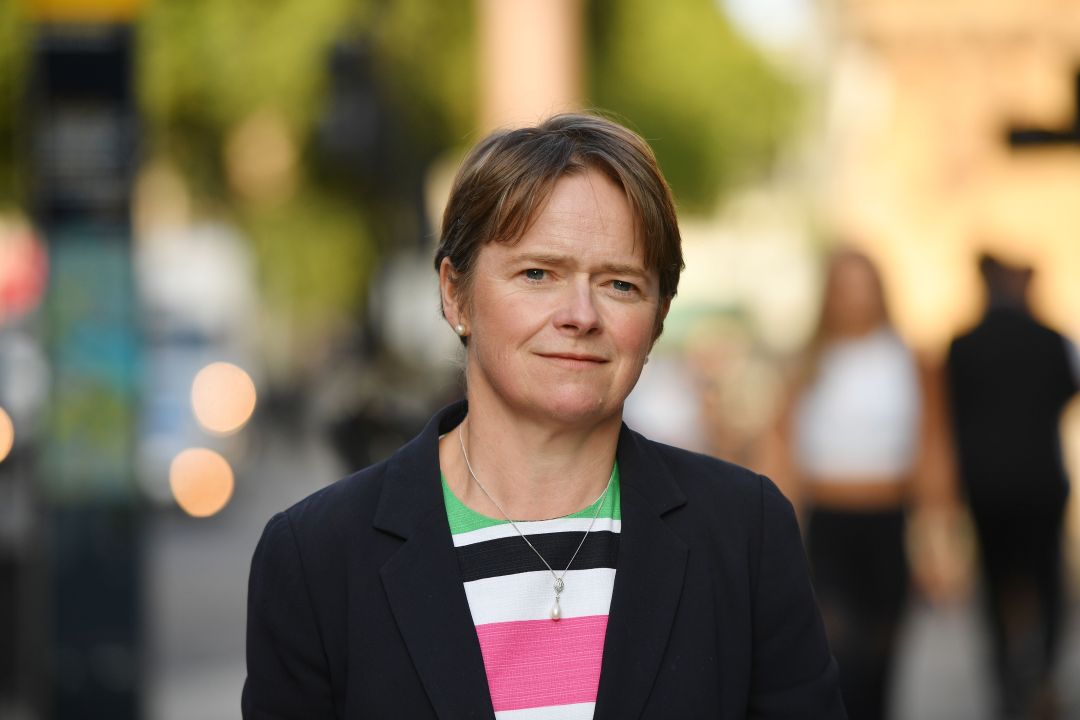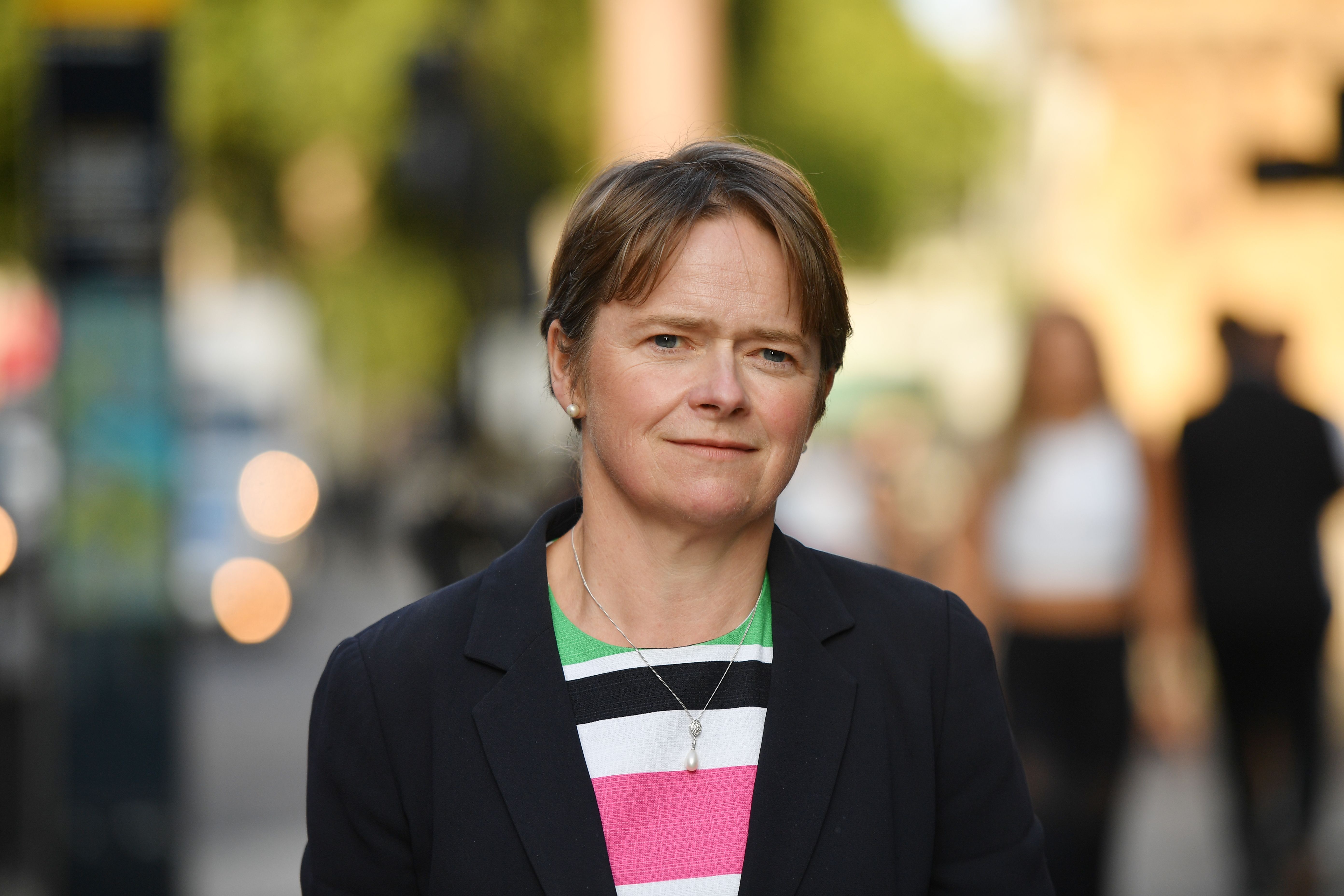Dido Harding’s campaign to become the next boss of the NHS in England took a high-profile turn this weekend.
‘Sources close to Dido Harding’ (perhaps ones occupying the same pair of shoes) briefed the Sunday Times about the Conservative peer and ex-boss of the £37 billion Test and Trace scheme pitch as a candidate. (If appointed, the noble Baroness will reportedly resign from the Conservative party and take an indefinite leave of absence from the House of Lords.)
Apparently, the health world’s favourite noble Baroness will end England’s reliance on foreign doctors and nurses if she replaces Sir Simon Stevens as the next head of NHS England.
This is an interesting and large commitment, given that the article cites House of Commons Library data that 170,000 out of 1.3 million NHS staff say their nationality is not British: almost 14 per cent of the workforce.
From an ethical point of view, there’s a solid argument that the NHS should make adequate national provision to train staff, as opposed to recruiting from countries with smaller economies and less well-funded health services.
There is also a counter-argument, however, that international recruitment helps those countries by providing those who return to their country of origin with valuable experience in a nation with an advanced and universal healthcare system.
Harding will apparently tell her interview panel that the NHS ‘cannot afford to return to its pre-pandemic state’
That same Sunday Times report claims that the noble Baroness would challenge the ‘prevailing orthodoxy’ in government that it’s better to import medical staff from overseas.
To describe the NHS’s use of international recruitment to help it fill workforce vacancies as an ‘orthodoxy’ shows naivety on Baroness Harding’s part — be that accidental or deliberate. Workforce shortages in the NHS — where overall one job in ten is not filled, mainly nurses and doctors — are of very long-standing. Training budgets for nurses were significantly cut in the 2006 NHS financial retrenchment and the level of funding has not been restored since. The decision to cut nursing bursaries in 2017, part of a credibility-free government plan to expand nurse training, has been another problem.
Dido’s ambition will, however, face a few challenges. Home-growing more staff is not intrinsically wrong. The aim for the NHS to train more medical staff here in the UK is a good one, but it has to be tempered by various factors.
The first of these is the scope of the role to which she aspires. Basically, NHS England works within the funding envelope that is set by the government. And the NHS England’s chief executive doesn’t write the comprehensive spending review. Only the review can dole out the level of sustained funding to even begin to put this level of extra training on the agenda in the future.
Next comes the need for realism about scale and timescale. Even if this approach was adopted, not only will it cost an awful lot of money, but it will realistically benefit the next government and its successor. The noble Baroness needs to be certain this will fly with the Treasury and its brand-aware boss, Chancellor Rishi Sunak. As her possible fellow-candidate Dr Mark Britnell’s book showed, the scale of demand for healthcare staff is unparalleled on the global market.
Just as important is a question of tone and respect for the NHS’s current ethnically and nationally diverse workforce. Harding’s aim for more UK training is hopefully motivated by perfectly reasonable ambitions, but it’s one that could easily be hijacked to align with the current government’s British or English nationalist sentiments. You can easily see an election poster about ‘the Great British NHS’, swathed in Union Jacks. ‘Great British healthcare jobs for Great British people!’, anyone?
A ‘local jobs for local people’ vibe also seems a strange way to treat the people who have been asked — decade after decade — to come here to work in our health and care system.
This wasn’t great timing on the noble Baroness’ part given that that today is Windrush Day. England’s chief nursing officer Ruth May spotted this, tweeting:
Since the inception of the NHS in 1948, the same year that passengers of HMT Empire Windrush disembarked at the Port of Tilbury, health service colleagues and our patients have benefitted from the skills of health and care professionals drawn from more than 200 nationalities.International recruitment has always been, and should continue to be, a vital part of the NHS… we’ll carry on a drive for global recruitment while also welcoming a record-breaking number of student nurses this year.
The final point is about the globalised nature of the healthcare workforce. The UK has been exporting trained young doctors to Australia and New Zealand for some time, as 2017 data shows. Even if we start much more training of UK citizens, are we then going to restrain their freedom of movement? And if so, how? Because they’ll want to know the deal before they start.
Just as importantly, will we attract the world’s top researchers in a health and life sciences if we indicate that the NHS has a ‘Brits first’ workforce approach?
The Sunday Times piece reveals that the noble Baroness Harding believes she would be a ‘change candidate’ — the ultimate ‘insider-outsider’ for the NHS. She is said to be citing her decades in the private sector, including seven years as chief executive of TalkTalk (bringing this up is a punchy move, given how she stepped down following a poorly-handled hacking leak of customers’ personal data).
Harding will apparently tell her interview panel that the NHS ‘cannot afford to return to its pre-pandemic state’ while sticking to the core strategy of Sir Simon Stevens’s ‘NHS Long-Term Plan’. That looks rather contradictory and will be an intriguing line to take with the interview panel. The panel’s choice of candidate then goes forward to Health Secretary Matt Hancock and PM Boris Johnson for their endorsement — or veto.
The Baroness’ claim that she ‘has the clout with ministers to raise funds’ is likewise punchy, given Sir Simon’s repeated outmanoeuvring of governments over NHS funding, which has effectively left the Treasury holding long-term but unimplemented strategic plans in return for more cash.
Much depends on whether those interviewing her for this job believe that they need someone who can do reassurance or radicalism on the NHS. Baroness Harding’s approach and performance are well-known to the sector: she has chaired the national performance regulator NHS Improvement since 2017 and was appointed in May 2020 to run Test and Trace.
Good luck to the noble Baroness. Let’s hope she doesn’t get beaten to the job by someone who is not British.







Comments